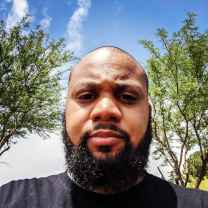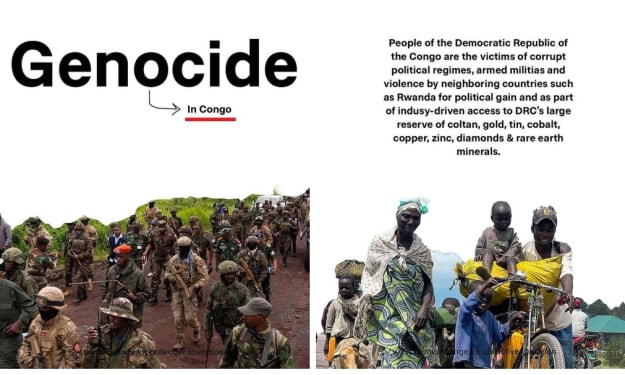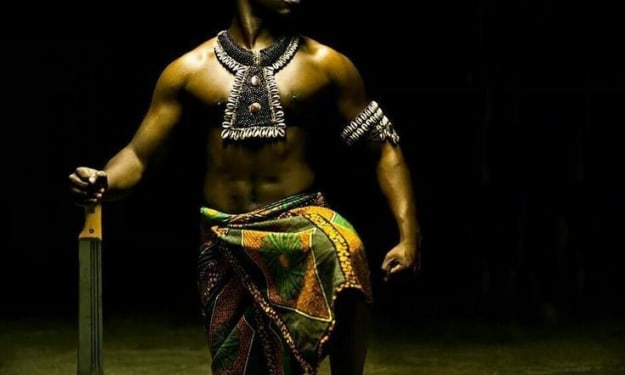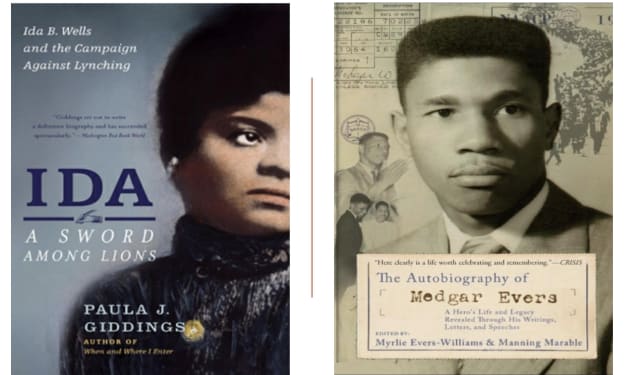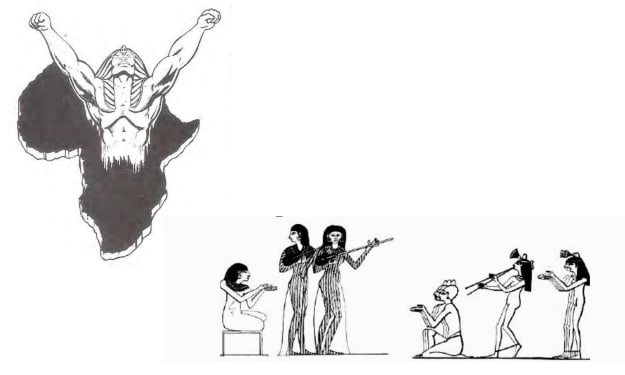
Darryl C. Richie
Bio
Inspirational Speaker, Author and Blogger looking to inspire with my story of being a two-time cancer survivor and hip amputee, and connect the African Diaspora to their African roots via Black Consciousness.
Stories (40/0)
Silent Genocide in the Heart of Africa: The Congo
Since 1996, the Democratic Republic of Congo (DRC; Congo) has been embroiled in violence that has killed as many as 6 million people. The conflict has been the world’s bloodiest since World War 2. Although people of the DRC are among the poorest in the world, having the fifth lowest GDP per capital globally, the DRC is widely considered to be the richest country in the world regarding natural resources that comes from the Congo’s soils. With untapped deposits, the raw materials that naturally comes from the Congo is estimated to be worth more than US $24 trillion. Gold, diamonds, cobalt, and zinc are among the natural resources that are found in the Congo.
By Darryl C. Richie8 months ago in Humans
The Love Kingdom: Paradise on Earth
The civilizations in ancient West Africa before the arrival of the Transatlantic slave trade can be described as “Heaven on Earth,” “The Envy of the World,” and “Paradise on Earth.” The continent of Africa or Alkebu-lan as it was known during the ancient world was the “land of the Spirit People” and the “land of the God’s.” One of the most prosperous kingdoms located in the aqua tropical and lush rain forests of present-day Southwest Nigeria was the Love Kingdom, founded by the supernatural, intellectual, creative, spiritual, and compassionate Yoruba (ethnic group or tribe) people. From a bird’s eye view, the Love Kingdom was like Southwest Nigeria, Tanzania’s island of Zanzibar in East Africa, and South Asia’s island nation of Sri Lanka combined.
By Darryl C. Richie10 months ago in Fiction
Yoruba Orisha Ogun: The God of War
Ogun is a Yoruba (African) Orisha God who was a real person who went by the name Alakaaiye from the kingdom of Ife (Yorubaland), and he was an Ife king during medieval Africa. Like King Oduduwa of the Ife Kingdom, King Ogun was also deified by the Yoruba people because he lived a great earthly life. Early Yoruba people cosigned smelting, and the fabrication and the use of iron tools, to the patronage of one of their most senior deities, the god later known as Ogun, who was from earlier times worshiped as the patron god of all working folks of Yorubaland. Ogun may have possibly been the first of such Yoruba gods, hence his situation as “Osinmole” (first, or king, among the earliest spirits or gods). In medieval Yorubaland (present-day Southwest Nigeria, a smaller part of Benin Republic, and still a small part of Togo Republic), the cult of Ogun became a special royal cult, and Ogun became, in addition to being the god of iron, also the god of war – the giver of victory in war.
By Darryl C. Richie12 months ago in History
Yoruba Orisha Yemoja: The Mother of us All
Yemoja is a Yoruba (African) Orisha Goddess that originated from Yorubaland (present-day Southwest Nigeria, a smaller part of Benin Republic, and still a smaller part of Togo Republic). Yemoja for the Yoruba is the Mother Goddess of the world, and she is considered “Lady and Queen of the Waters” and the mother of all the Orishas. She is one of the most powerful Orishas because Yemoja is the mother of all things, rules over motherhood and owns all the waters on Earth.
By Darryl C. Richie12 months ago in History
The Mandinka Province of Senegambia: The Kaabu Empire
The Kaabu Empire (1537-1867) was founded by the Mandinka people from the Mali Empire. Kaabu, like Mali was founded on strong Mende (Mandinka) values and ethics. Nyanchoo culture is examined in relation to five Mandinka political and social principles, which include Telingho (justice or being just), Forooya (possessing an exemplary character), Mooya (endowed with social intelligence), Hakiliyerewa (consciousness, the source of wisdom and critical thinking) and Sobeya (values for hard work and seriousness). It was these values that shaped Mandinka cultural and political philosophies and contributed to making them notable state-builders in West Africa.
By Darryl C. Richieabout a year ago in History
Celebrating Ida B. Wells & Medgar Evers: The Heroine and Hero of Black America
Ida B. Wells was an African American journalist, activist, abolitionist, and feminist who led an anti-lynching crusade in the United States of America in the 1890s. She went on to found and become integral in groups striving for African American justice and freedom. Wells also established several civil rights organizations. For example, in 1896, she formed the National Association of Colored Women, and she is also considered a founding member of the National Association for the Advancement of Colored People (NAACP). Ida B. Wells wrote about issues of race and politics in the south of the U.S. Several of her articles were published in Black newspapers and periodicals under the moniker “Iola.” Wells eventually became an owner of the Memphis Free Speech and Headlight, and later, of the Free Speech.
By Darryl C. Richieabout a year ago in History
Africa’s Most Flamboyant Emperor: “King of Kings” Mansa Musa of the Mali Empire
The Mali Empire of West Africa was one of Africa’s greatest states during medieval times. Mali’s history goes back to the 7th century, but it owes its fame to two great men, Sundiata Keita and Gonga (Kankan) Musa. “Mansa Musa,” the best-known ruler of the ancient (Western) Sudan, came to power in 1307 and put together one of the greatest countries of the medieval world.
By Darryl C. Richieabout a year ago in History
The Beautiful Tuareg Women of North & West Africa
The Tuareg people are in North and West Africa (the Sahara and Sahel regions). They are found in present-day Mali, Libya, Algeria, Niger, Northern Nigeria, and Burkina Faso. They are a tribe of Berber origins and are semi-nomadic pastoralists that dominated the central and southwestern region of the Sahara. They are also known as “the veiled ones” because of the veils they wear due to their following of Islam. The veils also protected them against the desert sun and sand. The Tuareg are also known as the “Blue People” or “blue men of the Sahara Desert” because of the indigo dye of their clothing that rubbed off and stained their skin. The veils are manly worn by the Tuareg men. They acted both as a turban and a veil that covered the nose and mouth.
By Darryl C. Richieabout a year ago in Education
King Jayavarman VII: The Compassionate Warrior King of the Khmer Empire
The most prominent and enduring kingdom of early Southeast Asia was Angkor (802-1431). The builders of this civilization were Africoid people known as the “Khmers,” a name that is like Kmt (ancient Kemet, ancient Egypt). Much of the early knowledge of early Southeast Asia comes from Chinese and Indian sources. Chinese historical documents speak of the Funanese, who were the builders of the earliest kingdom in Southeast Asia. The Funan Kingdom was in present-day Southern Vietnam and Cambodia. The documents describe the people as “ugly and black.” Their hair is curly. The Khmer men, essentially the same as the Funanese, were described by the Chinese as “small and black.” In 1923, Harvard University anthropologist Roland Burrage Dixon noted that the ancient Khmers were physically “marked by distinctly short stature, dark skin, curly hair or even frizzy hair, broad noses and thick negroid lips.”
By Darryl C. Richieabout a year ago in FYI
Music as a Healing Force in Ancient and Medieval Africa
The ancient Kemite Sages instituted tight controls on theatre and music because they understood indulgence in inappropriate entertainments was known to cause mental agitation and undesirable behaviors. Famous ancient Greek Philosopher and student of the Ancient Kemetian Mysteries, Pythagoras wrote that the ancient Kemites place particular attention to the study of music.
By Darryl C. Richie2 years ago in Beat
CalmandStrong: Ife-Daro
My top four favorite albums of all-time are in the genres of Hip-Hop and Reggae music. The number four means foundation, so my foundation best represents who I was in the past, who I am in present, and who I aspire to be in the future. My favorite music artists are Nas, The Pharcyde, Blu & Exile, and Chronixx, and they represent different time capsules in my life and through their music and lyrics, they captured what I was going through during those specific time periods in my life.
By Darryl C. Richie3 years ago in Beat
When We Ruled: The Importance of African Identity: The Yoruba and Edo
The country of the Yoruba people (Yorubaland) before conquest and colonization by Europe consisted of Southwest Nigeria, later under British rule, the Republic of Benin, later under French rule, and The Republic of Togo, later under German, (and later French) rule. During pre-colonial times, the Yoruba had many different prominent people from their many kingdoms who left their mark in African history during ancient and medieval times, and right before the eve of colonization by Europe.
By Darryl C. Richie3 years ago in FYI
